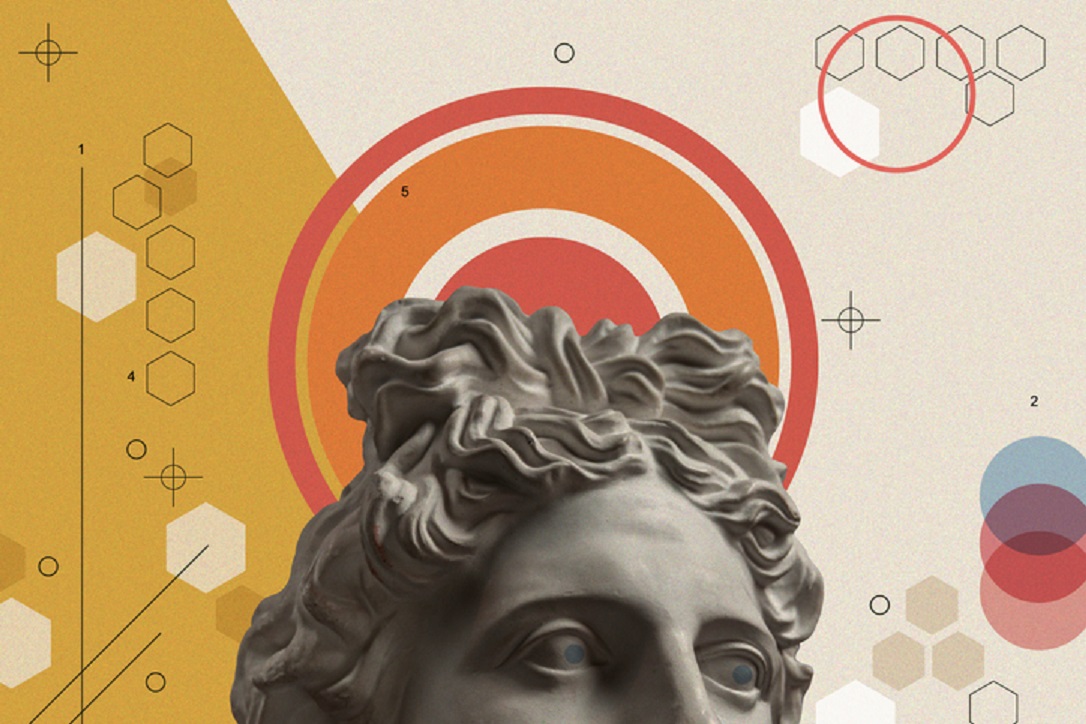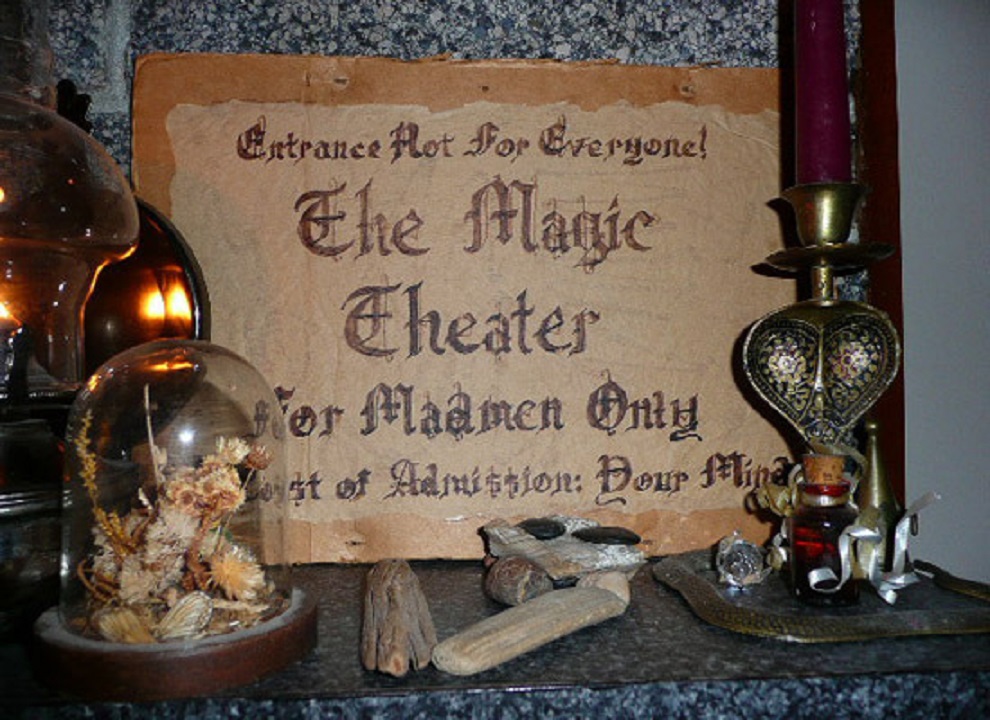Entropy means that information has been lost from the system. Information in turn refers to what we might call the ‘surprise content’ of what’s going on such that when there is zero element of surprise then this means that the entropy content is at a maximum. ‘Maximum entropy’ means that everything is a foregone conclusion right from the start and that nothing can ever happen to upset the apple-cart of our beliefs. Nothing can ever happen that would cause us to revisit our worldview ever again – visiting it the one time is all that we need. ‘Been there, done that,’ we say…
From a psychological point of view, therefore, a world where entropy is at a maximum is a world where it absolutely is possible to have ‘the correct view of things’, ‘the correct opinion on things’, ‘the right belief about things’. And the point here is that once we do have the right belief, the right viewpoint, the right opinion, etc., then we never have to bother ourselves changing it again because – as we have said – in an entropic world nothing ever really changes. This static situation is immensely attractive to us because no work is ever needed; having to change the way in which we see the world is the hardest work there is and so we are avoiding this challenge. Our laziness is thus what consigns us to a closed-down or entropic world – inasmuch as we are familiar with avoidance in everyday human psychology, we are also familiar with the principle of entropy, or ‘irreversible information loss’.
This is no minor consideration – avoidance isn’t something that we indulge in every now and again – it’s ‘the rule’, it’s ‘the name of the game’. The name of the game (in our everyday run-of-the-mill type existence) is preserving our starting-off point, whether we look at that starting-off point in terms of ‘who we think we are’ or in terms of ‘how we understand the world’. Both come to the same thing. This profoundly conservative orientation corresponds to what James Carse calls a Finite Game – the aim of a Finite Game being to make sure that we stay in control every step of the way, to make sure – in other words –that nothing ever happens that we don’t approve first. A Finite Game is us enforcing (or trying to enforce) our version (or view) of things, therefore.
Finite games are where we legitimise ‘not allowing ourselves to have our mind changed in any way’ – it’s where we say that being invulnerable to change is the greatest good. As Carse says, finite games are all about never allowing ourselves to be taken by surprise – we make very sure that we’re ‘one step ahead’ at every stage of the game. What we’re doing here therefore is that we’re avoiding the central existential challenge of responding to the living, dynamic world that is out there (and that would mean dropping whatever comfortable assumptions it is we might be working on the basis of); it means having to see ‘who we are’ and ‘what life is all about’ in a totally new way. By our successful avoidance of anything new – which we legitimise by taking the position that the old ways are always the good ways and that we have what comes down to a moral duty to fight against anything that threatens them – we create a closed world, a world in which the status quo is all important, no matter how oppressive that status quo might be, in world in which newness (i.e., information) is excluded from the picture.
The classical definition of entropy is to say that it is a measure of the predictability of the system under consideration, which is of course another way of saying that there aren’t ever going to be any surprises for us in that system. There are never going to be any surprises forthcoming in the situation where entropy is at a maximum. The description of the system now is going to be just as applicable in a hundred, or a thousand, or a million years’ time; the other way of expressing this is to say that the domain in question is nothing more than the linear extrapolation of our starting-off point. The feeling that time is passing and that we are moving steadily along the time axis into the unknown future is an illusion therefore, it’s an illusion since nothing is really changing. There might be the trivial appearance of change but that is all – the framework itself never changes and anything that happens within it (within the mapped-out domain of ‘conditioned space’) is a tautological reflection of that same FW.
It’s as if we’re saying the same thing over and over again whilst giving the plausible impression that we’re actually coming out with something different each time. This is therefore what is meant by the term tautology – what we’re looking at here is a ‘tautological development’, which is actually no development at all. Nothing that happens in this realm is actually for real –it looks as if things are happening, but nothing is. When we ‘freeze-frame’ the universe in this way we can in a sense say that we have ‘won out over the process of change’, that we have ‘successfully avoided the new’, but in a deeper sense however we haven’t achieved anything – we’ve done is to create a hollow game in which are winning and losing (or progressing and regressing) are equally meaningless terms.
In a universe where ‘the lack of change’ can’t exist there can be no such thing as ‘freeze-framing’, obviously. Freezing the frame and making the tautological expansion or extension of that frozen frame into ‘the Whole of Everything’ means quite simply that we cease to exist — as James Carse says, ‘Only that which can change can’t continue’. Blocking change means that we opt out of reality entirely and the thing about opting out of reality entirely is that we don’t know that we have done it. We’ve ‘lost our connection to reality’ and if we knew this to be the case then we wouldn’t have lost our connection after all. The irony here is clear – the only way in which we can successfully avoid the challenge of the new is by giving up on reality entirely. Reality is nothing else but ‘newness’, after all.
This is just another way of saying, as Frank Herbert does, that ‘Without new experiences something inside of us sleeps’. When we refuse the Challenge of the New then puts us into a type of spiritual coma from which it is very hard to wake up from again. This isn’t a strange or exotic notion, of course – the notion is perfectly familiar to us (in the form of myths and fairy tales, if nothing else). The motif of falling into some kind of enchanted sleep is something we’ve all come across it; we’ve all come across it but at the same time we pay it no heed. We accord no significance to fairy tales or the like because we’re such hard-headed rationalists, fully immersed in our world of facts and figures. We pride ourselves on our practical, no-nonsense approach to life and we are unable to appreciate the rich joke that we have unwittingly playing on ourselves – we don’t realise that there is genuine wisdom in fairy tales (which we think are good only for amusing small children). The ability to know wisdom when we come across it is quite lost to us in our rational slumber; if we were to come across it we’d only laugh – ‘When a foolish man hears of the Dao he laughs out loud. If he didn’t laugh, it wouldn’t be the Dao’. [Dao De Ching #41].
Entropic worlds have no information in them – they are ‘information-free zones’ and what this means is that we are kept busy on a full-time basis with abd endless series of futile or meaningless tasks. The only reason we engage in a task in the first place is because we think that it’ll get us somewhere, because we think that ‘successfully completing the task’ is different to ‘not completing it’. Tasks aren’t undertaken just for the sake of it after all, but to achieve a specific goal. In the closed-down (or entropic) world nothing that hasn’t already been programmed into the system can ever happen however and so there is in reality no question of us ever ‘achieving; anything. The only thing we’re succeeding at is in the perpetuation of the dream that we’re caught in.
The goals which we chase so determinedly have the appearance of being new, they sell themselves to us on the strength of being new, but they aren’t. As we keep saying, we’re never going to find anything new in the Closed World – that would be like looking for gluten in gluten-free flour! If we wanted newness then all we’d have to do is take down the walls that we ourselves have put up – we’d have newness aplenty then, we’d have more newness that way than we would know what to do with! We’re none too keen to do this however – we’re none too keen to do this because that would mean that we’d lose our ‘yardstick’ (since a yardstick only works when it stays the same). We would lose our way of understanding ‘who we are’ and ‘what the world is’. Since ‘losing our yardstick’ equals ‘losing our mind’ which – as Herman Hesse informs us in his novel Steppenwolf – just happens to be the price of admission to the Magic Theatre (the Magic Theatre which is reality). This is a show we absolutely don’t want to know about however…
Image – alphacoderscom






